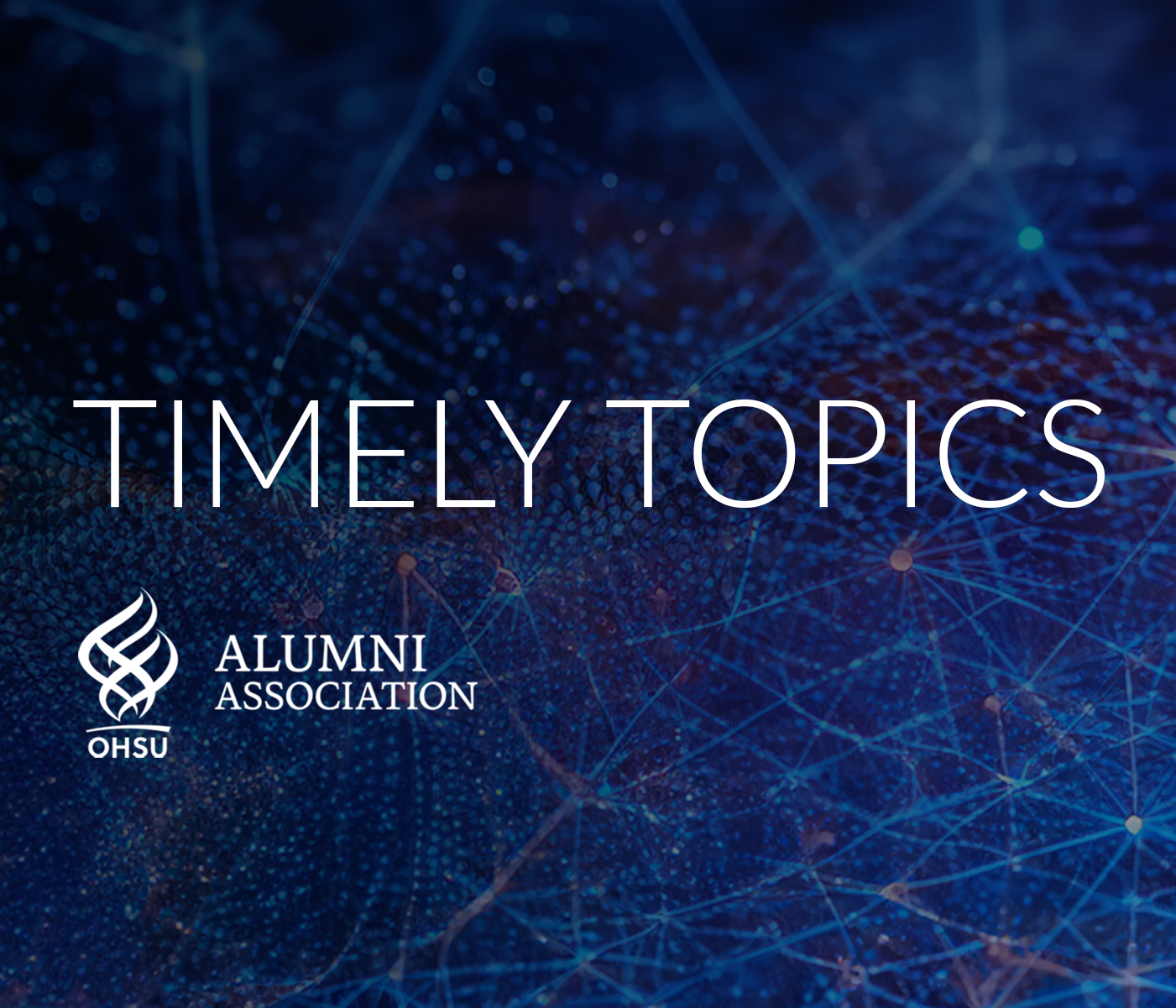Alumni
Timely Topics Webinar: AI in the Clinic and Beyond
12 p.m.

Learn how AI is transforming health care as we know it from two OHSU experts leading the way in AI adoption.
AI’s rapid ascendance has been met with a range of reactions – from excitement to uncertainty to fear about unforeseen outcomes. Wherever you fall on this spectrum, there’s no denying that artificial intelligence is poised to transform health care as we know it.
Take a deeper look behind the headlines with Shannon McWeeney, Ph.D. and Kyle Ellrott, Ph.D., two OHSU experts leading the way in AI adoption. Explore promising use cases for AI in primary care, research and education, and examine the concerns and challenges that may be keeping you up at night.

Shannon McWeeney, Ph.D.
Professor of Medical Informatics and Clinical Epidemiology, OHSU School of Medicine
Chief Data Officer, OHSU Knight Cancer Institute
Shannon McWeeney, Ph.D. is a methodologist working at the intersection of computer science, biostatistics and genetics to develop approaches to solve research bottlenecks and novel ways to visualize and interpret information. Her work on novel computational methods and frameworks for prioritization is one of her most significant contributions to science. While these methods were initially applied to precision medicine (cancer), they have wide applicability for target identification and therapeutic prioritization for many complex traits.

Kyle Ellrott, Ph.D.
Assistant Professor of Computational Biology, OHSU School of Medicine
In his research, Kyle Ellrott, Ph.D. considers the various aspects of large scale data integration in the field of computational biology, specifically related to Cancer Biology. He has also worked in protein structure prediction and metagenomics. His current focus has been creating systems that allow the integration of data from large cancer cohorts in hopes of doing synthetic lethality target detection, significant non-coding mutation detection, and pathway level mutational effect analysis.
If you would like to request a recording of this webinar, please email the Alumni Team at [email protected].
